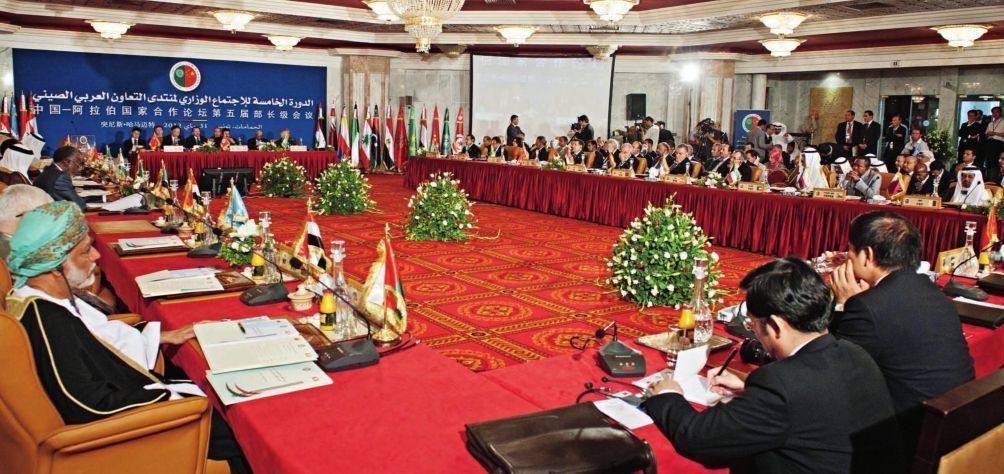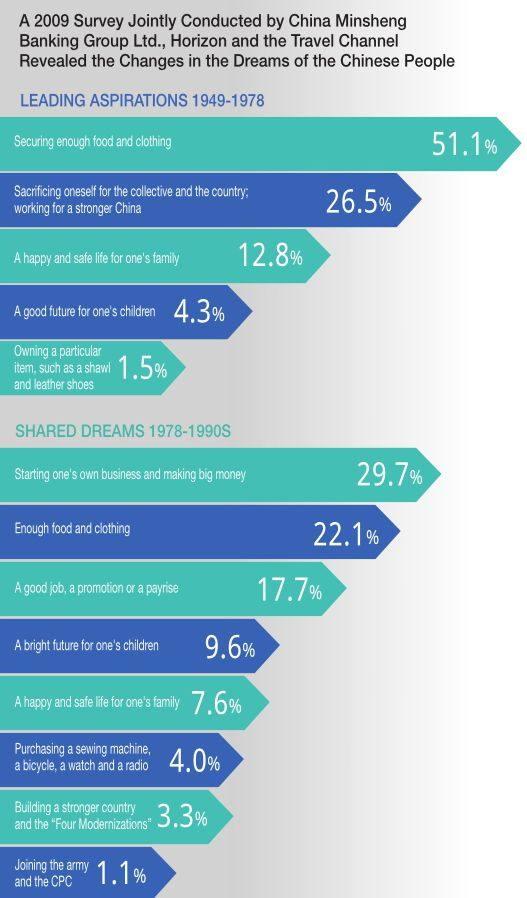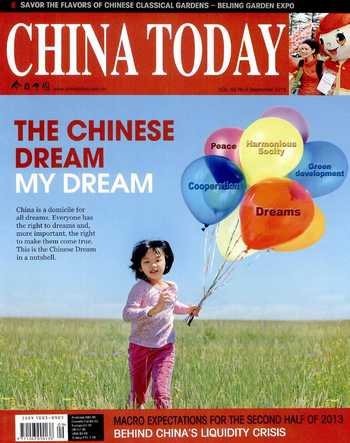The Chinese Dream Needs Arabic Support and Cooperation
By WU SIKE
NOT long ago I visited several Arab countries and talked about the Chinese Dream with national leaders and locals alike. The Chinese Dream concerns national rejuvenation and prosperity, and peoples happiness. China has been striving to realize these ideals for generations.
In the Middle East, I emphasized that the Chinese Dream would not and could not be realized behind closed doors. We need to persist in reform and opening-up and pursue wider cooperation with other countries. The Chinese Dream is a dream of peace, development, cooperation and mutual benefit. It needs support and cooperation from the Middle East, especially Arab countries. Meanwhile, the process of realizing our nations dream complements Arab nations efforts to achieve peace and sound development. Both sides should work together hand in hand.
One Arab leader said he was convinced that the Chinese Dream would be realized. He had come to that conclusion based on his long-term observations of the country and his experience in dealing with Chinese leaders. He also spoke about the medium- to long-term development plans of his country. He believed that the Chinese Dream and the development goals of Arab countries should support each other. I see his views as a true reflection of Sino-Arabic relations and a positive portent for future of cooperation.
The Chinese nation has gone through a lot to get where it is today, including struggling for national independence, defending national sovereignty, developing economy, and exploring ways of development that best suit its characteristics. At each point in this long process, China has received sympathy and support from Arab countries. We always say that Arab countries are our good friends, brothers and partners. The relationship is one of genuine respect and amicableness. China has shared historical experiences with many countries in the Middle East that obtained political independence after World War II, adopted independent and peaceful foreign policies, respected peoples right to self-determination, actively safeguarded world peace, and played a unique role in world economic and geopolitical happenings. Ties with the Middle East represent some of Chinas most important foreign relationships, and Arab countries are a key base for Chinas diplomacy.
In the mid-20th century, national liberation movements swept through Asia, Africa and Latin America. Countries on those continents supported one anothers dreams of independence. The Peoples Republic of China, having realized independence and liberation in 1949, followed the historical trend and took a firm stance to support the peoples of Asia, Africa and Latin America, and the righteous struggle of Arab countries for the right to govern themselves. China also won wide friendship in the Arab world. Arab countries established diplomatic relationships with China and supported China in regaining its legitimate seat at the United Nations. During the process of striving for national independence, China and the Arab world supported each other, forming a bulwark against colonialism, hegemonism and power politics.
Since the end of the Cold War in the late 20th century, there have been great changes in global geopolitical landscape. Multipolarity has become more apparent, globalization has marched on, and countries are more focused on making their voices heard.
While competition between nations has by some measure intensified, cooperation in both politics and economic and social development has also reached new heights.
Development is now a key goal for China and the Arab world; the two sides historical paths continue to run in parallel. The Chinese and Arab peoples both seek economic develop- ment, social progress and stability. Policies are focused on ensuring peoples well-being. The two sides have also grasped the opportunities presented by globalization, supported each other and cooperated in the spirit of friendship.
Entering the 21st century, profound changes have once again swept the world. New challenges have arisen both geopolitically, with the September 11 terrorist attacks and the subsequent “War on Terror,” and economically, with the 2008 global financial crisis. Against the backdrop of a rapidly evolving global diplomatic landscape, both China and the Arab World have turned challenges into opportunities and enhanced cooperation in fields such as politics, economics, science and technology, energy and culture.
In 2004 the Forum on China-Arab Cooperation was held, which promoted ties to a new height. Mutual respect, equality, win-win cooperation and mutual development are now firmly entrenched as the mainspring of the China-Arab relationship.
Over the past two years, the people of a number of Arabic countries have demanded revolution. Revolution is justified when it can bring peace, stability and development. Countries like Egypt are still in the process of changing. China stands by the people and maintains its friendly cooperation with them.
Facing changes in the Middle East, China, based on its diplomatic concepts and friendship with the Arab people, unequivocally declared its stance. First, China understands and respects peoples aspirations and demands for revolution in these countries and region. Second, China supports these countries in independently choosing their own development paths and realizing peoples wishes via peaceful dialogue, and opposes other countries intervening in the internal affairs of the nations involved. Third, China emphasizes adopting nuanced approaches to regional issues, continues to attach great importance to key regional issues, actively promotes political resolution of problems, and makes persistent efforts to promote peace in the region and create a safe, sound and prosperous environment. Fourth, China provides economic, technical and humanitarian assistance to the countries undergoing transformation, and carries out multi-level and multi-field communication with them. It attaches great importance to Sino-Arabic cultural exchange and public diplomacy, is increasing exchanges between governments and administrations, and aims to promote further improvements in bilateral ties.
Though the world economy is still feeling the fallout of the
global financial crisis, economic and trade cooperation between China and Arab countries in 2012 showed encouraging signs. Trade volume reached US $222.3 billion, up 13.5 percent over the previous year. The turnover from Chinas contracted projects in Arab countries reached US $19.35 billion, accounting for 16.6 percent of Chinas total contracted projects in the world. Newly signed contracts represented US $19.94 billion, accounting for 12.7 percent of all new contracts in 2012. Both parties have made good progress in financial, investment and infrastructure fields. At the same time, we can see great potential for increasing cooperation. For example, in 2012, China-Arab trade volume accounted for only 5.75 percent of Chinas total foreign trade volume. Chinas direct investment in Arab countries totaled just US $1.39 billion, up 120 percent but accounting for only 1.8 percent of Chinas direct investment abroad. In the coming five years the total volume of Chinas imports should reach US $10 trillion, and overseas direct investment US $500 billion. Therefore, it is of great importance to fully tap potential for economic and trade cooperation. Doing so will aid mutual development, accelerate growth and expand employment. From Chinas perspective, the Arab world will be key to realizing the Chinese Dream.
The Chinese Dream is closely linked with the development of Arab nations. Both have solid foundations. Realizing the Chinese Dream in China and realizing transformation of the Middle East will usher in a new historical era for both sides and open a new chapter in their bilateral relationship. China and the Arab world should enhance mutual understanding in poli- tics and consolidate intergovernmental communications. Both parties should promote pragmatic cooperation and strengthen trade, investment, infrastructure and energy cooperation. This agenda should be pursued within the framework of mutual benefit. Bilateral relationships should be strengthened by greater government exchanges on medium- and long-term administrative goals. Both parties should also enhance cultural exchanges in order to deepen mutual understanding.
Facing the future, China and the countries in the Middle East should grasp opportunities, deepen cooperation and advance hand in hand. We should support each other on both general and strategic issues concerning peace and development and promote Sino-Arabic friendship to a new height. The Chinese Dream and the dream of Arab peoples for peace, prosperity and development are intertwined. Theres no going back.
- CHINA TODAY的其它文章
- Sharing the Chinese Dream with Latin American Countries
- Avoid a Narrow Understanding of the Chinese Dream
- Zeng Yi: Leading an Industry
- Rao Jin: A Dream of Becoming a Lao Teacher
- The Chinese Dream and the French Dream Are Interlinked
- The Chinese Dream Is Conducive to the Sino-U.S. Relationship

